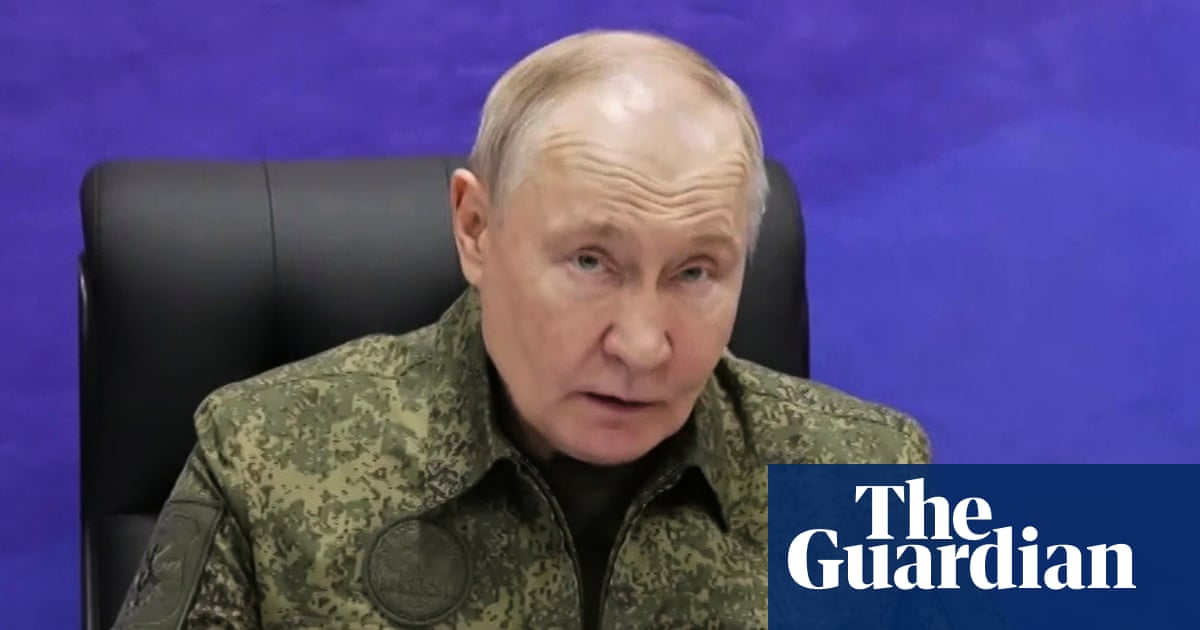Taiwan has become the world’s biggest importer of Russian naphtha, a petroleum derivative used to make chemicals needed for the semiconductor industry, despite the fact that it has joined other sanctions against Russia and considers itself an ally of Ukraine.
In the first half of 2025, Taiwan imported $1.3bn worth of Russian naphtha, and average monthly imports reached a level nearly six times higher than the 2022 average, according to a report published on Wednesday. Compared to the first half of 2024, Taiwan’s naphtha imports this year increased by 44%.
Taiwan has elsewhere been reiterating its support for Ukraine in the war with Russia. On Sunday, Taiwan’s foreign minister, Lin Chia-lung, signed a pact in Poland to provide support for children in Ukraine affected by Russia’s invasion.
After Russia’s full-scale invasion of Ukraine in 2022, Taiwan joined international sanctions against Moscow. It has also imposed export controls to prevent the island’s hi-tech equipment from being used by Russia’s military.
But Moscow’s ability to continue with the war is funded in part by energy exports, with billions of dollars coming from Taiwan.
Since February 2022, Taiwan has imported 6.8m tonnes of Russian naphtha, worth $4.9bn, which is equal to 20% of Russia’s total exports of the petroleum product.
The US president, Donald Trump, has urged countries to stop buying Russian oil.
The findings come from a report published on Wednesday by the Centre for Research on Energy and Clean Air, a Finnish thinktank, in collaboration with a consortium of European, Russian and Taiwanese NGOs.
Naphtha is a crude oil product that is used to make chemicals required for manufacturing semiconductors, electronic components that are the backbone of Taiwan’s economy and which are vital for global industry.
Despite joining other sanctions against Russia, Taiwan, which is overwhelmingly reliant on imports for its energy needs, has not imposed restrictions on purchases of Russian fossil fuels.
Joseph Webster, a senior fellow at the Atlantic Council, said that revenue from Taiwan’s purchases of Russian naphtha “are not immaterial to the Kremlin’s revenues.”.
Taiwan imports about 97% of its energy, a fact that experts have highlighted as a key vulnerability in the event of a conflict with China. It is a self-governing democracy but China claims it as part of its territory and has not ruled out the use of force to annex the island.
Many analysts have drawn comparisons between Russia’s designs on Ukraine and China’s plans for Taiwan. The conflict is closely watched in Taiwan and has spurred an interest in civil defence training programmes. There is a concern that China’s support for Russia during the war in Ukraine could be reciprocated by Moscow in the event of a Chinese conflict with Taiwan.
But some analysts said that Taiwan’s purchases of Russian oil should not be over-interpreted. “This looks like opportunism by Taiwan’s petrochemical industry,” said John Lough, the head of foreign policy at the New Eurasian Strategies Centre. Lough said that even if the money from Taiwan helped to fill the Kremlin’s coffers, “it’s a stretch to think that [Russia] will be willing or able to provide military support to China in the event of increased Chinese pressure on Taiwan”.
Webster said: “While Moscow and Beijing seek to absorb Ukraine and Taiwan, respectively, the two authoritarian powers are applying different approaches along different timelines. Moscow’s illegal invasion was a desperate attempt to halt Ukraine’s western orientation, but Beijing is much more patient and believes time is on its side.”
Hsin Hsuan Sun, a director at the Environmental Rights Foundation and co-author of the report, said: “Taiwan cannot afford to ignore the risks created by its growing dependence on Russian fossil fuel”. Sun said that the reliance “undermines Taiwan’s credibility with democratic allies”.

 2 months ago
67
2 months ago
67

















































